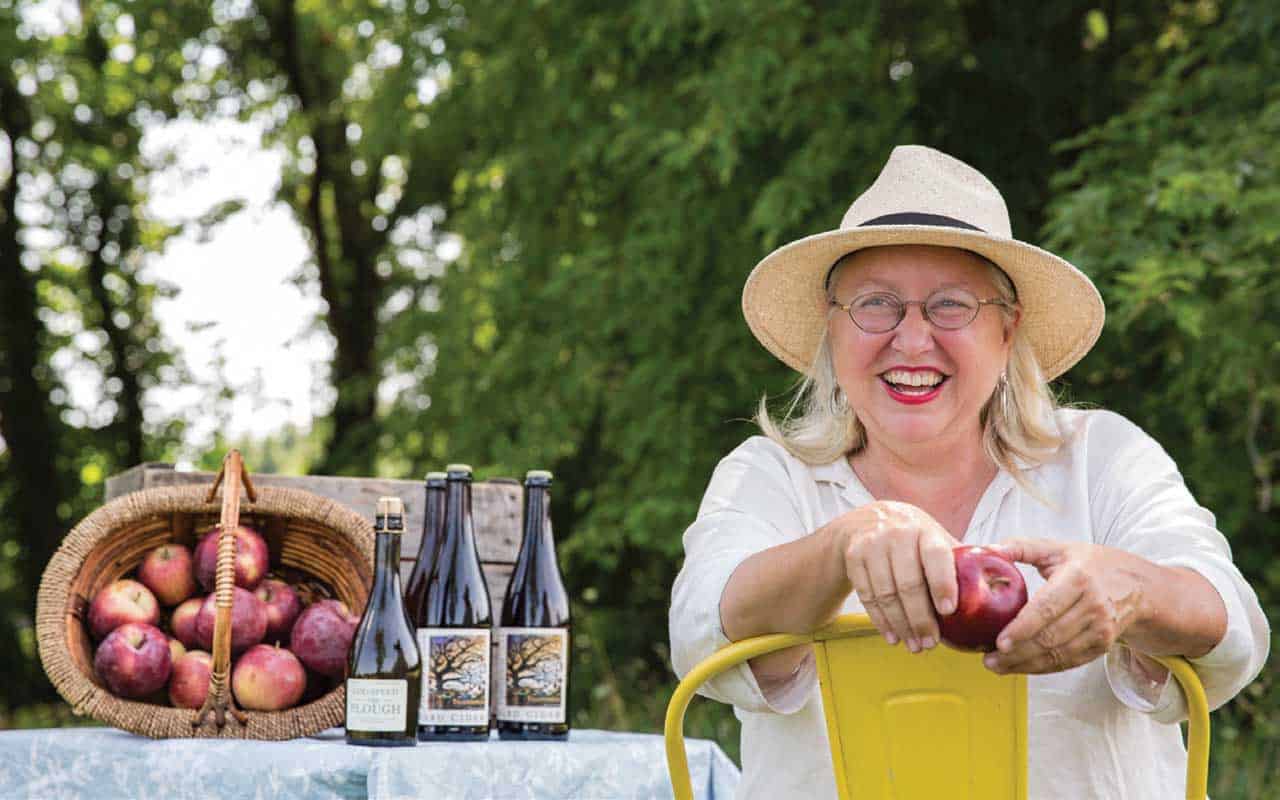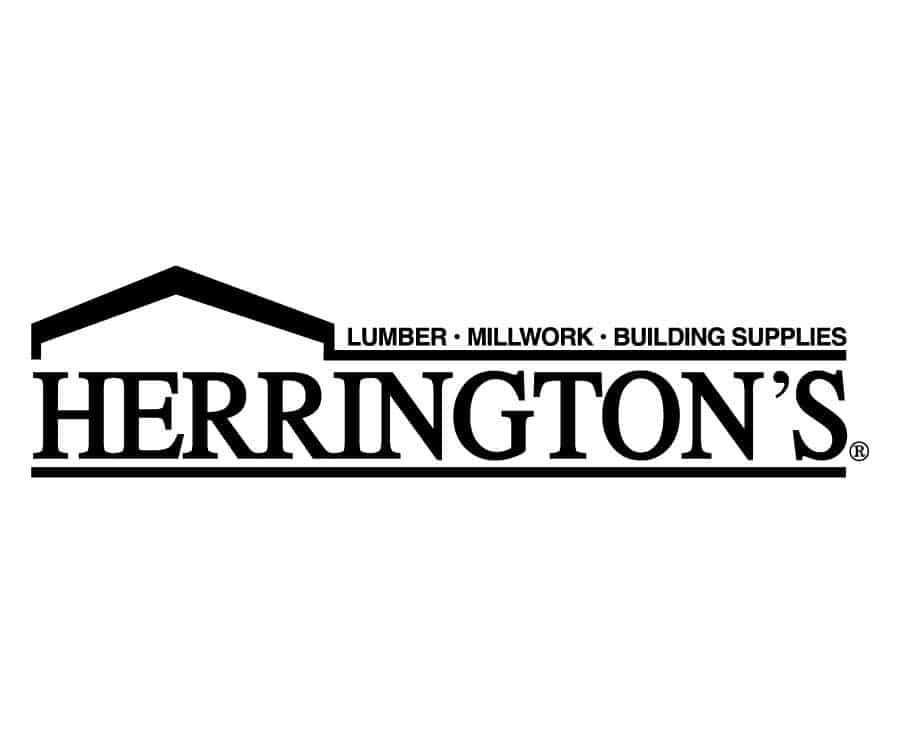Main Street Business

Apple Lady & Family Farm Advocate
Elizabeth Ryan spoke to us from her truck, parked at the Breezy Hill farm stand in the Union Square market in NYC on a busy Saturday when we had our first conversation about Ryan’s multiple businesses. I wanted to interview her because of the exceptional cherry pies Breezy Hill sells at the Millerton Farmer’s Market. What I discovered was an ambitious agricultural enterprise headed by a passionate advocate for local farms and communities. Ryan is a fierce, articulate champion for agriculture, the Hudson Valley, baked goods, apples and cider.
Could you describe your family of farms?
We own and operate two large historic orchards. I acquired Breezy Hill Orchard, which was part of the original Nine Partners patent, in 1984. Then Stone Ridge Orchard was added on the other side of the Hudson near New Paltz. The orchard stretches for over a mile. We are in the process of creating our own land trust to protect the farms. This is where our U-pick activities, farm stand, tasting room, wood-fired pizza, and Farm Bar are located.
We are also partners in Knoll Krest Farms. Breezy Hill has been a partner with the owners, the Messerich family, who have been producing cage-free and hormone-free eggs since 1946. Over the years we’ve helped them add value to their commodity egg business by producing and marketing fresh pasta that we sell at farmer’s markets along with their eggs.
How did you become a farmer?
Growing up, my mother took us to the Iowa farm she grew up on for the summer. I didn’t like it at the time, but making everything from scratch influenced me. My mother and father were against me having anything to do with agriculture. “Your grandparents worked their fingers to the bone and you are throwing away an Ivy League education,” was their view. I graduated from Cornell’s Agriculture School in 1980 with a degree in Pomology. At that time there were 150 dairy farms operating in the Hudson Valley and city green markets were just starting. I was one of the founding members of the Union Square Market when it was difficult to find growers who wanted to come into the city to sell direct to consumers. That’s how I became the apple lady.
Your pies are the best. Where is the recipe from?
The recipe is a family recipe from my mother who was born and raised on a farm in Iowa without electricity or running water during the Depression. People ate pie at every meal – every day. Our pies have no thickeners. They are all fruit with a pinch of sugar and a little flour. I feel that if you can’t make a delicious fruit pie you should give up growing fruit. We use all butter in our pies, but the original recipe calls for fresh lard, which is hard to get these days.
I appeared on The Martha Stewart Show several years ago showing how I make an apple pie. She corrected my technique and I said, “That’s the way my mother does it.” Despite this, Martha remains a good friend and supporter that I adore. She’s a perfectionist and a very hard worker. I credit her with so many “good things.”
When did you start selling baked goods at your stands?
A fire on October 17, 1993, destroyed the orchard’s buildings at Breezy Hill. We had over $2 million in damage with very little insurance. We decided to rebuild and change. It was a very tough year without water or electricity. We did everything we could to survive including wading into the wetlands to make swamp bucket arrangements of Queen Anne’s Lace, purple loosestrife and cattails to sell at the market. Before the fire we were a small apple orchard. After the fire we expanded and added a commercial kitchen and invested in equipment – it was the only way to save the farm.
We’re not Bread Alone, but we do have five to twenty people working in the kitchen making cookies, real cider doughnuts, fruit pies, and pasta. I consider myself a grower first, a cider maker second, and a baker third.
When did Breezy Hill start producing hard cider?
I made my first barrel of cider while I was a student at Cornell in 1980 and we’ve been making artisan ciders from our own apples since the 90s after I learned European cider making techniques in Somerset and Hereford in England, and in Normandy. It was a transformational experience. Our ciders have won awards in Europe where there is a tradition in northern France and England of drinking fermented local cider on a daily basis. When we began, there were very few people making artisanal hard cider, but now there are over 900 cideries in the US, and it’s a $500 million dollar business including some national brands.
What are the economics of your business?
We say that we make money in the fall and lose it all winter. Winter is a lean season for everyone. We participate in 10 and 20 farmers markets at the peak of the season and taper off to core markets in the winter. We have a stable community of workers that we have to sustain all year long and, fortunately, we have the support of loyal customers.
The economics of farming in the Hudson Valley are challenging for everyone. Customers have a lot of choices. The land is expensive. The costs of farming are high. It’s not glamorous for full-time farmers who make 100% of the living from the farm. These farmers are the backbone of agriculture and their life is getting more and more difficult. It breaks your heart.
How has COVID affected your business?
COVID has been a whole reset. The mood in the markets has changed. Customers say thank you for coming. And we say, “Don’t forget us when everything is back to normal.” The impact has been very episodic. There’s a big surge in pasta sales with people cooking at home, but fewer customers at the city markets. We are expanding our online and on-premise sales and focusing more on our local markets.
The federal CFAP, Corona virus Food Assistance Program, that was supposed to help farmers, provided very little of the $16 billion to small and midsize farms. Almost all the money went to the large agro-industrial commodity producers.
How was the weather this year for apples? Do you see evidence of climate change?
A large number of fruit growers had some frost damage this spring. You have to diversify your orchard locations and have high ground and low ground to survive. This year there was a beautiful bloom and then freezing temperatures hit. Just a few degrees can have a dramatic impact on the fruit crop.
The volatility of weather events has definitely increased over the years – the extremes are amplified – the droughts are doughtier and the rain falls more violent. There has also been an enormous impact on biodiversity and a decline in pollinators. Our orchard at Breezy Hill has been studied by New York State, which found 38 of the native 39 wild bees present at the orchard. This is because we support the habitat and have used low impact sprays since day one.
Would you call yourself an agricultural activist?
I am the chair of the legislative committee for the New York Cider Association, which advises New York State legislators on policies that affect NYS producers of hard cider. I was a keynote speaker at the NY State Governor’s Alcohol Summit where I pushed for legislative changes to support the expanding hard cider industry. Our farm Breezy Hill Orchard is a founding member of the Union Square Farmer’s Market. I speak out publicly about the importance of farmers to our communities. Right now we need huge reforms to protect all medium and small farmers. •
To learn more about Breezy Hill Farm, you can visit them online at www.breezyhillorchard.com


